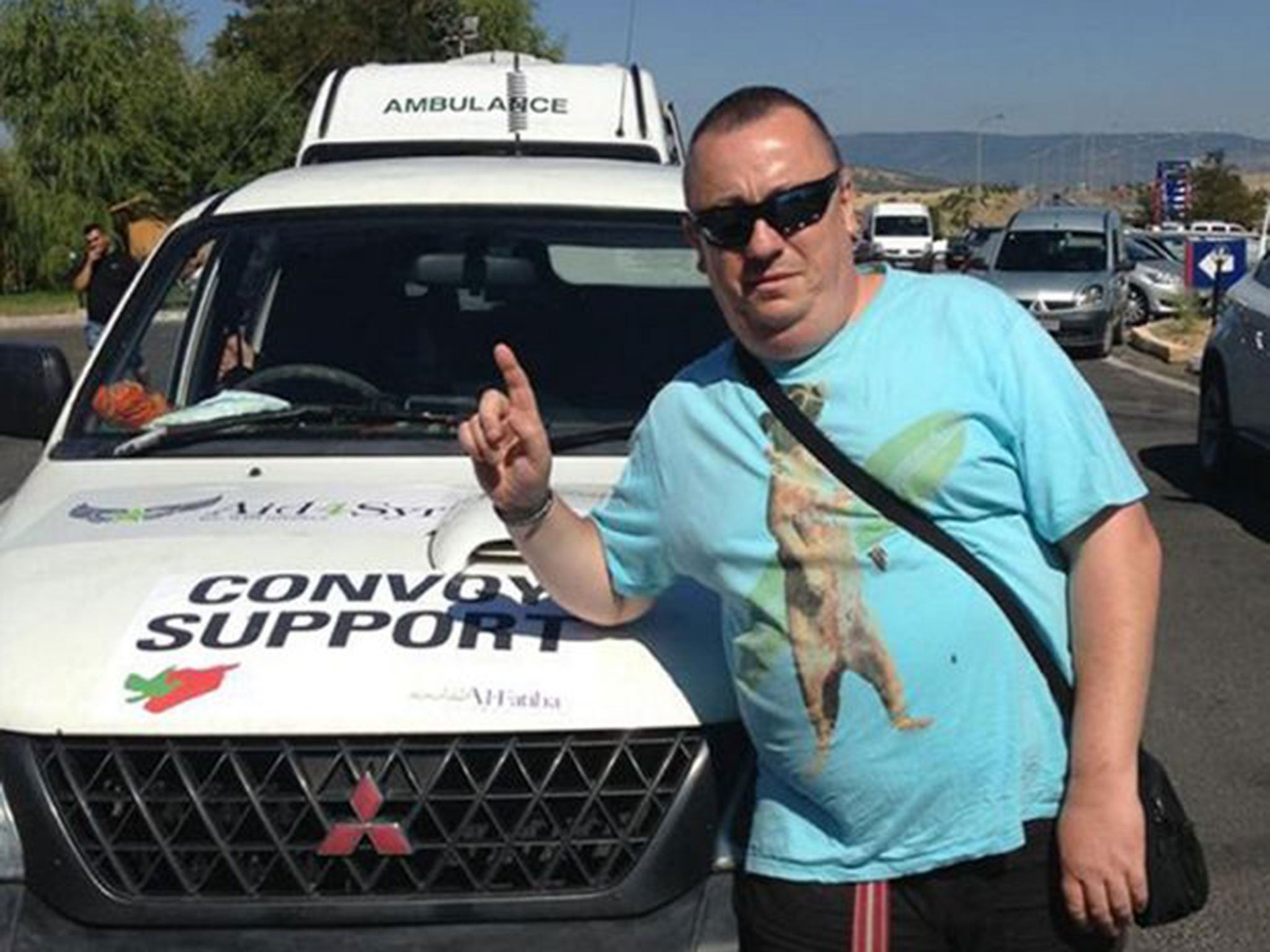Alan Henning kiddnapping: Bleak hope for British hostage taken by Isis
'Any air strike with UK backing is going to have a detrimental effect on the negotiations,' says a fellow volunteer

Your support helps us to tell the story
From reproductive rights to climate change to Big Tech, The Independent is on the ground when the story is developing. Whether it's investigating the financials of Elon Musk's pro-Trump PAC or producing our latest documentary, 'The A Word', which shines a light on the American women fighting for reproductive rights, we know how important it is to parse out the facts from the messaging.
At such a critical moment in US history, we need reporters on the ground. Your donation allows us to keep sending journalists to speak to both sides of the story.
The Independent is trusted by Americans across the entire political spectrum. And unlike many other quality news outlets, we choose not to lock Americans out of our reporting and analysis with paywalls. We believe quality journalism should be available to everyone, paid for by those who can afford it.
Your support makes all the difference.A friend of Alan Henning, the British taxi driver held hostage by Islamic State (Isis), warned yesterday that air strikes by British warplanes on Isis would leave little hope of Mr Henning being released alive.
Speaking as RAF planes flew over Iraq, Shameela Islam-Zulfiqar said that she was not "very optimistic" about the fate of her fellow volunteer, given that militants had beheaded two US journalists, James Foley and Steven Sotloff, in retaliation for US air strikes.
A third hostage, British aid worker David Haines, has also been murdered.
Dr Islam-Zulfiqar, who is studying for a master's degree in humanitarian and conflict response, had travelled with Mr Henning on several aid convoys to Syria, including the one in December when he was captured.
"Any air strike with UK backing is going to have a detrimental effect on the negotiations that have been going on to try and have Alan released," she told The Independent on Sunday. "If you go by the pattern we have seen over the last four weeks … it doesn't leave you very optimistic, but we still have to remain hopeful.
"To give up hope completely, when we don't know, is not going to help us or the family to cope with it. It's a very difficult situation."
The inevitable civilian casualties from air strikes would, she warned, have a "devastating effect on the ground to people who are already suffering".
She said that Mr Henning, 47, a father of two from Salford, is "a remarkable, unique human being".
"He gave up the comfort of his home and travelled thousands of miles to a different land, a different region, a different culture, a different place because he saw past all these things and humanity came first for him," she said. "To harm any innocent civilian is completely against the tenets of Islam, but somebody who came [to Syria] for purely humanitarian reasons … it would be a huge miscarriage of justice for [Isis] to harm him or kill him."
Isis released a video with another British hostage last week, photojournalist John Cantlie. He was seized by Isis in November 2012 when he went to Syria to meet fighters who were said to have helped secure his release after he was captured there in July of that year.
Experts suggested the prospects for the British hostages were bleak following the decision to send in UK warplanes.
Middle East expert Nadim Shehadi, associate fellow at Chatham House, said it was clear that the militants were keen to portray themselves as cruel and heartless to the West. "[The holding of hostages] is certainly something that will be used, and the fact [Henning] has been on TV almost constantly in the last week puts him on the front line," he said.
"We are dealing with a propaganda machine. All the communications we are receiving about Isis are to make it [appear] absolutely evil, an unspeakable monster that we have to attack."
Asked why Isis was beheading Westerners when it must know this was likely to provoke the West to attack, Michael Scheuer, who was formerly head of a CIA unit tracking Osama bin Laden, told CNN: "They want us to come over there … so they can beat us again. If they can get an American field army on the ground, they have found twice now, in Iraq and Afghanistan, that they can defeat it."
Join our commenting forum
Join thought-provoking conversations, follow other Independent readers and see their replies
Comments